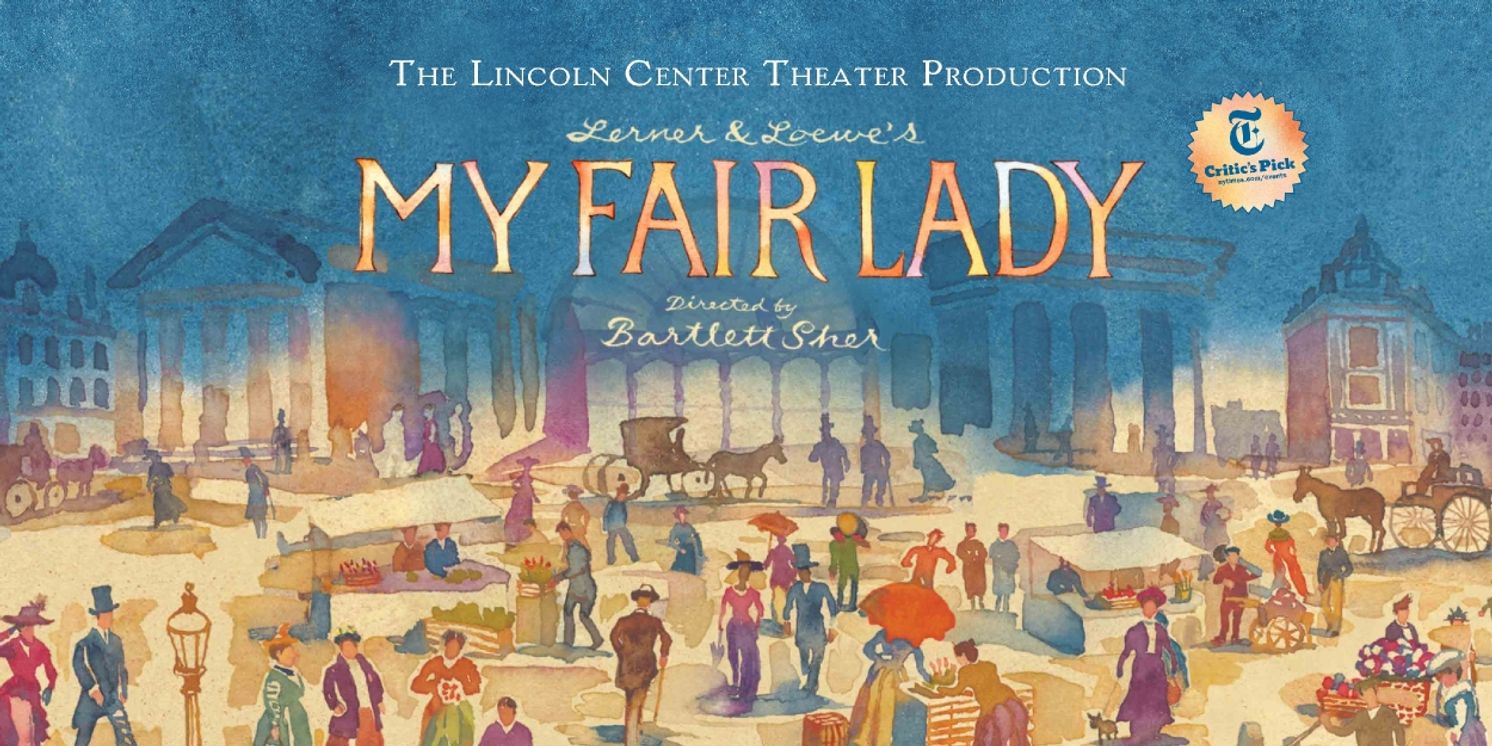Review: National Tour Revival Of MY FAIR LADY at DCPA
Sometimes it is better to let sleeping dogs lie.

I'd heard and read other people's thoughts about this current touring production of Lincoln Center's My Fair Lady, quickly pointing to the fact that it is a non-Equity (AEA) tour as the source of it's problems. I, personally, am not so quick to jump to an actor's credentials as a reason for a production's shortcomings. Frankly, I find it in poor taste and I will also solidly point to this ensemble of actors as incredibly talented and worthy of an audience. That being said, the show isn't without its faults, which I believe has more to do with the source material.
Under the direction by Bartlett Sher, the creative elements of Lincoln Center's production are aesthetically pleasing to the eye. Scenic Design by Michael Yeargan and Costume Design by Catherine Zuber were both done with a nice mix of classical and contemporary musical theatre elements. The costume design for the "Ascott Gavotte" scene alone was impeccable. My only real issue were the traveling set pieces. In example, the moving street lamps were a nice touch but also clearly on 2x4 wooden platforms with wheels. When everything else was so pristine, especially the Higgins Manor, the little things stuck out like a sore thumb.
Generally speaking, I found the cast to be rather delightful! The ensemble especially had some fun moments to exemplify a character beyond the given circumstances which added its own, unique flare to this production. The leading players, for me, made the best of rather insufferable characters. It was like watching an episode of The White Lotus. Michael Hegarty as Alfred P. Doolittle was reminiscent of what happens when The Artful Dodger grows up. Cameron Loyal as Freddy comes equipped with a beautiful voice, I only wish the role came with more opportunity. Freddy serves the purpose of offering an equal and opposite to that of Higgins for Eliza - it isn't that he's the better option, he's a different kind of intolerable compared to the unfavorable professor. In the role of Professor Higgins is Jonathan Grunet. Grunet gives the character the Imelda Staunton/Dolores Umbridge treatment - if by the end I hate you, you're doing your job well. He is the only clear villain in the story and yet is also the leading man. As the leading player, Eliza Doolittle, Madeline Powell is strong in her ability to curve Eliza's story arc - a true rags to riches storyline. Admittedly, at the beginning of the show there was a certain, shall we say, language barrier between she and the audience. I might have been following along, but definitely did not understand much of the Cockney accent for the first maybe 20 minutes. But when she sang, everything was as clear and pure as a bell chime.
All in all, I feel like we have to stop producing certain classical shows for the sake of producing a classical show. There are certain tropes personified in My Fair Lady that we have collectively grown so far beyond. I especially don't understand the ending of the show: Eliza dismisses Higgins (well, herself), only to then come back after he gets the final number in the show to his home and leave him again seconds later. Even if the resolution is that she doesn't choose him, the written ending should match finality of the decision. The last scene just felt really anticlimactic. I will admit, however, I'm glad she still left him, regardless of how it happened.
Lincoln Center's production continues it's tour into 2023. For more information, visit https://www.myfairladyontour.com/.
Reader Reviews

Videos

